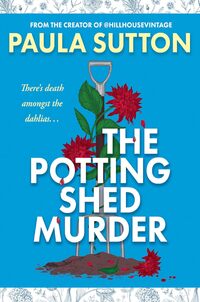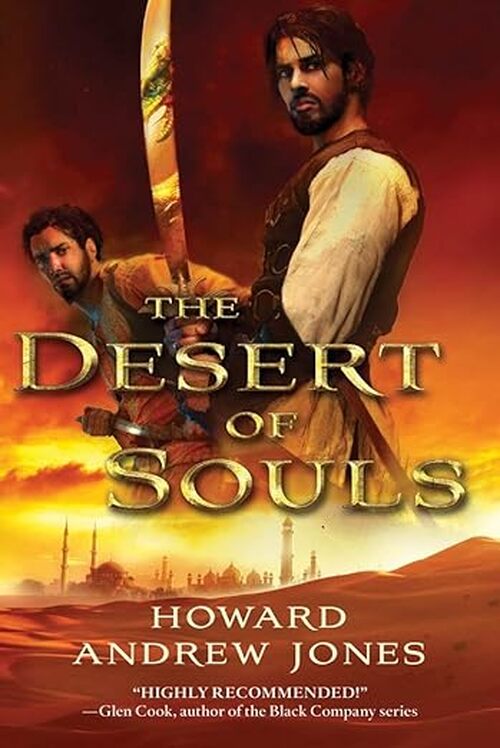 THE POTTING SHED MURDER |
 Sunshine, secrets, and swoon-worthy stories—June's featured reads are your perfect summer escape. |

Purchase
Thomas Dunne Books Fantasy Historical Excerpt of The Desert Of Souls by Howard Jones1 The parrot lay on the floor of his cage, one claw thrust stiffly toward the tiny wooden swing suspended above him. The black olive clenched in his beak was the definitive sign that Pago was a corpse, for while he had fooled us all by playing dead in the past, he had never failed to consume an olive. To be sure, I nudged the cage. It shook, the swing wobbled, and the bird slid minutely but did not move a single feather of his own accord. “He is dead,” Jaffar said simply behind me; simply, but with the weight of the universe hung upon the final word. I turned to my master, who sat with his back to me upon the stone bench of his courtyard. The second-story balcony, from which the cage hung, draped Jaffar in shadow. Beyond him, sunlight played in the rippling water that danced from a fountain. Flowers blossomed upon the courtyard plants and wild birds warbled gaily. Another parrot, in a cage upon the far wall, even called out that it was time for a treat, as he was wont to do. But my master paid no heed to any of this. I stepped into the sunlight so that I might face him. Upon another bench, nearby, the poet Hamil sat with stylus and paper. There was no love in the look he bestowed me, and he returned to his scribblings with the air of a showman. “Master,” I said, “I am sorry. I, too, was fond of Pago.” “Who could not be?” Jaffar asked wearily. He was but a few years younger than my twenty-five, but due to time indoors looked younger still, no matter his full beard. His face was wan, from a winter illness that had also shed some of his plumpness. “He was the brightest bird here,” Jaffar continued in that same miserable tone. “Brighter than many in your employ,” Hamil said without looking up. “Too true,” Jaffar agreed. “Is there some way that I can help, Master?” I was the captain of Jaffar’s guard and sometimes his confidant; the matter of bird death, however, was outside the field of my knowledge, and I did not understand why he had summoned me. It is true that I had found Pago entertaining, for in addition to playing dead, he could mimic the master and his chief eunuch, and even sometimes answered the call to prayer by bowing thrice. He did this only when it pleased him to do so, which, as my nephew Mahmoud once noted, was far too much like many men he knew. Also Pago had once perched upon the poet’s chest when Hamil had passed out from consuming the fruit of the grape, and pinched his long thin nose heartily. That had pleased me so that I brought Pago the choicest of olives whenever I knew I would pass by his cage. “Do you suspect he has been killed?” Jaffar asked. Excerpt from The Desert Of Souls by Howard Jones |
|
| |||
|
||||




 © 2003-2025
© 2003-2025